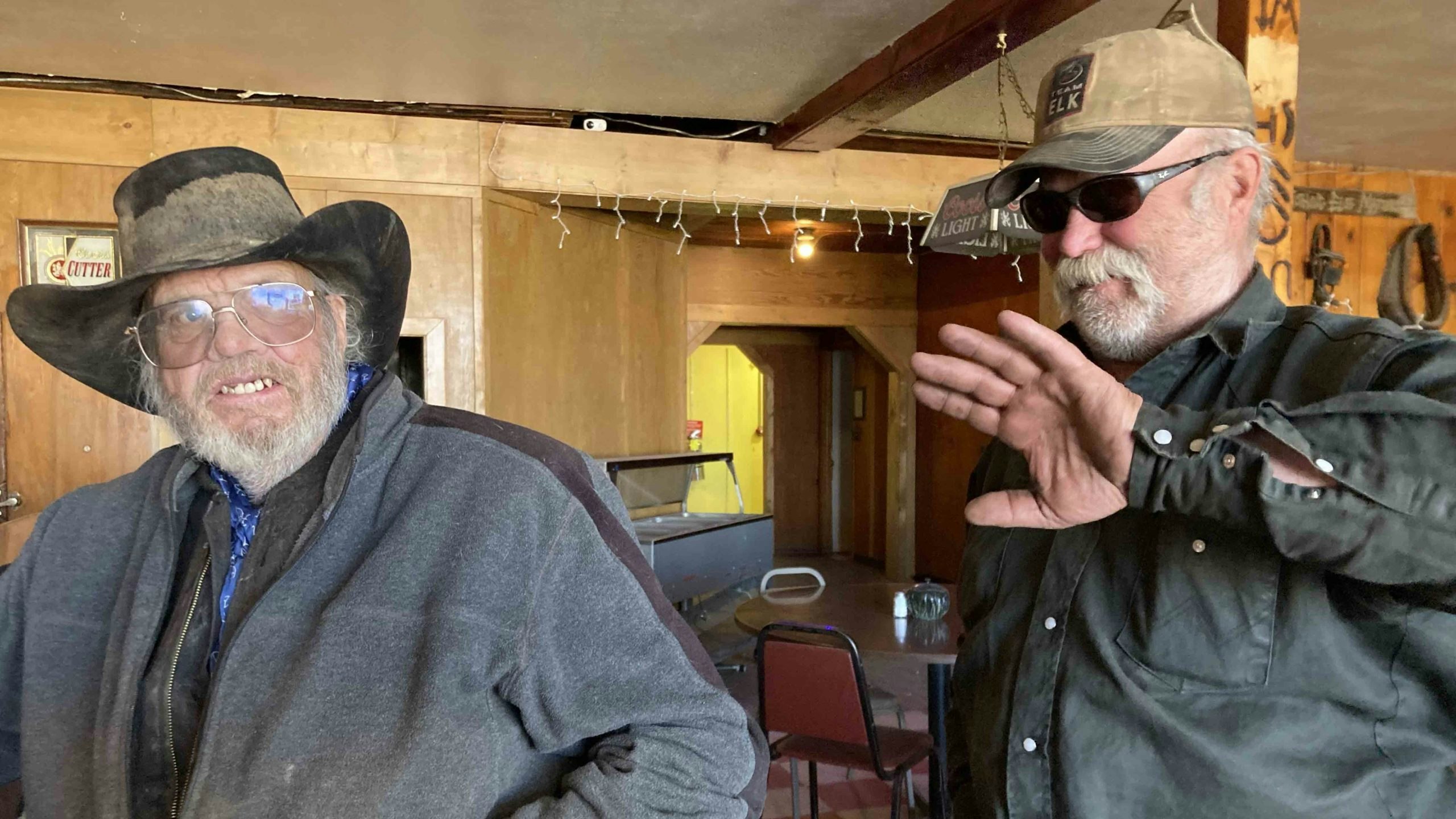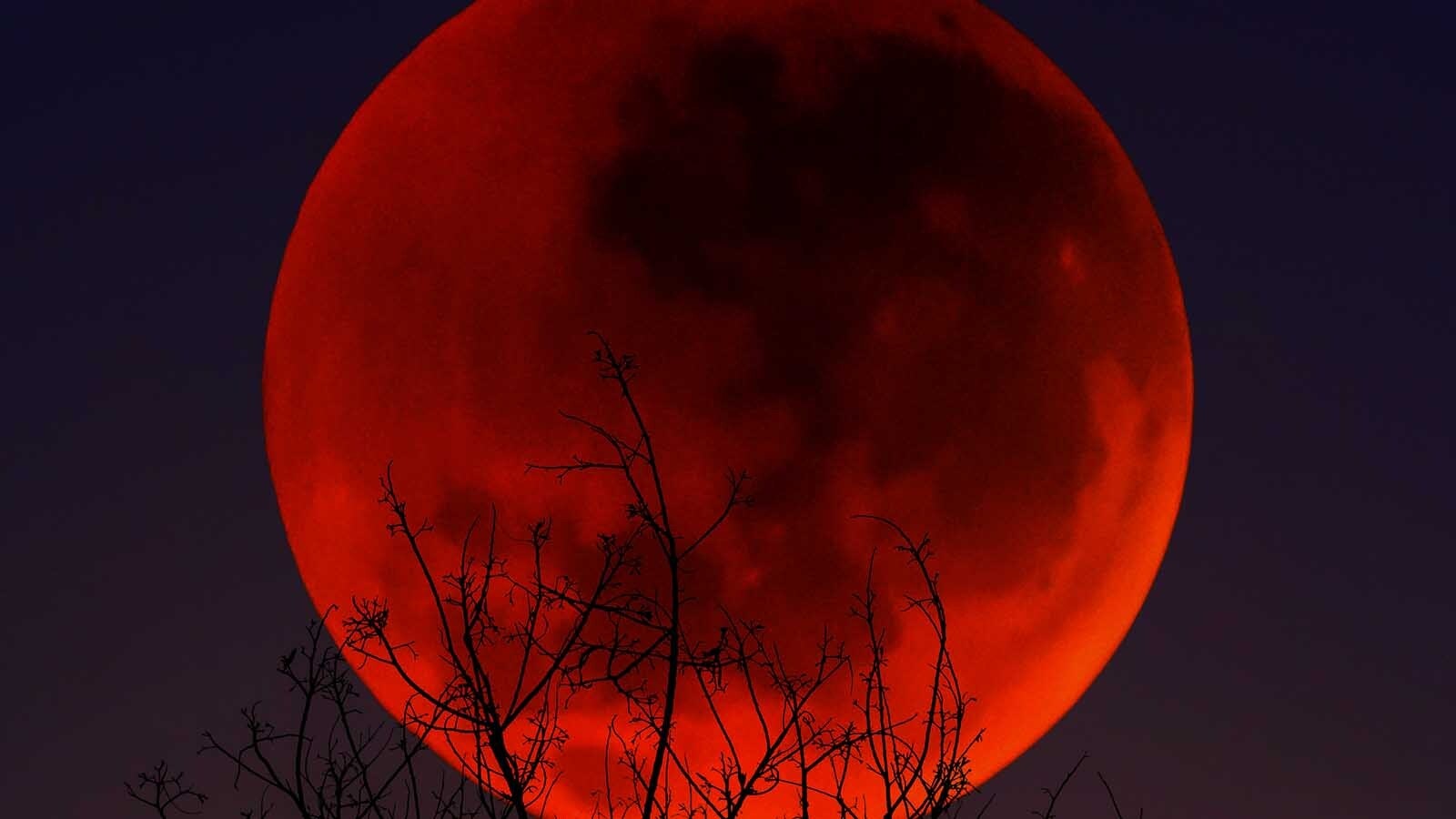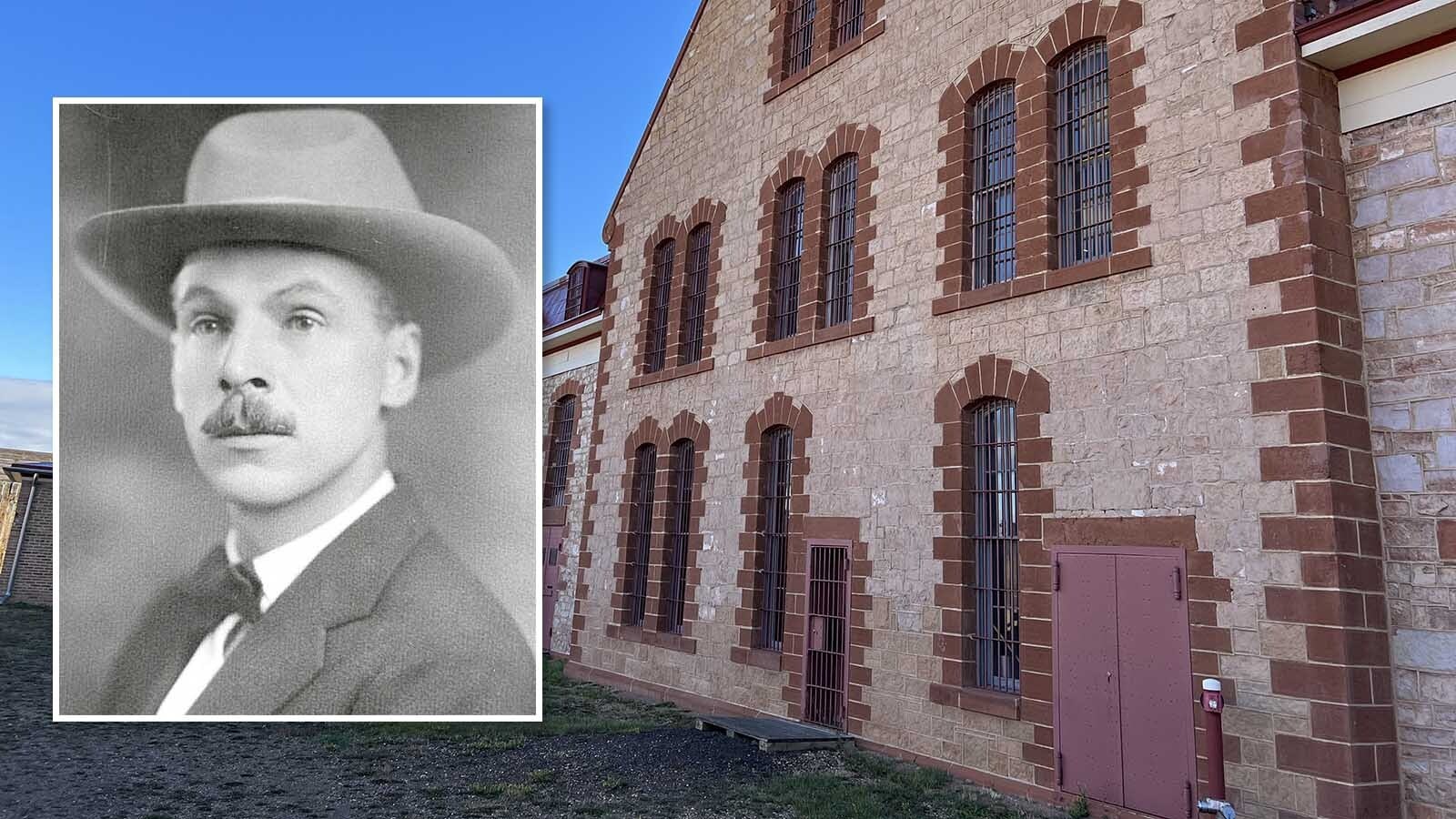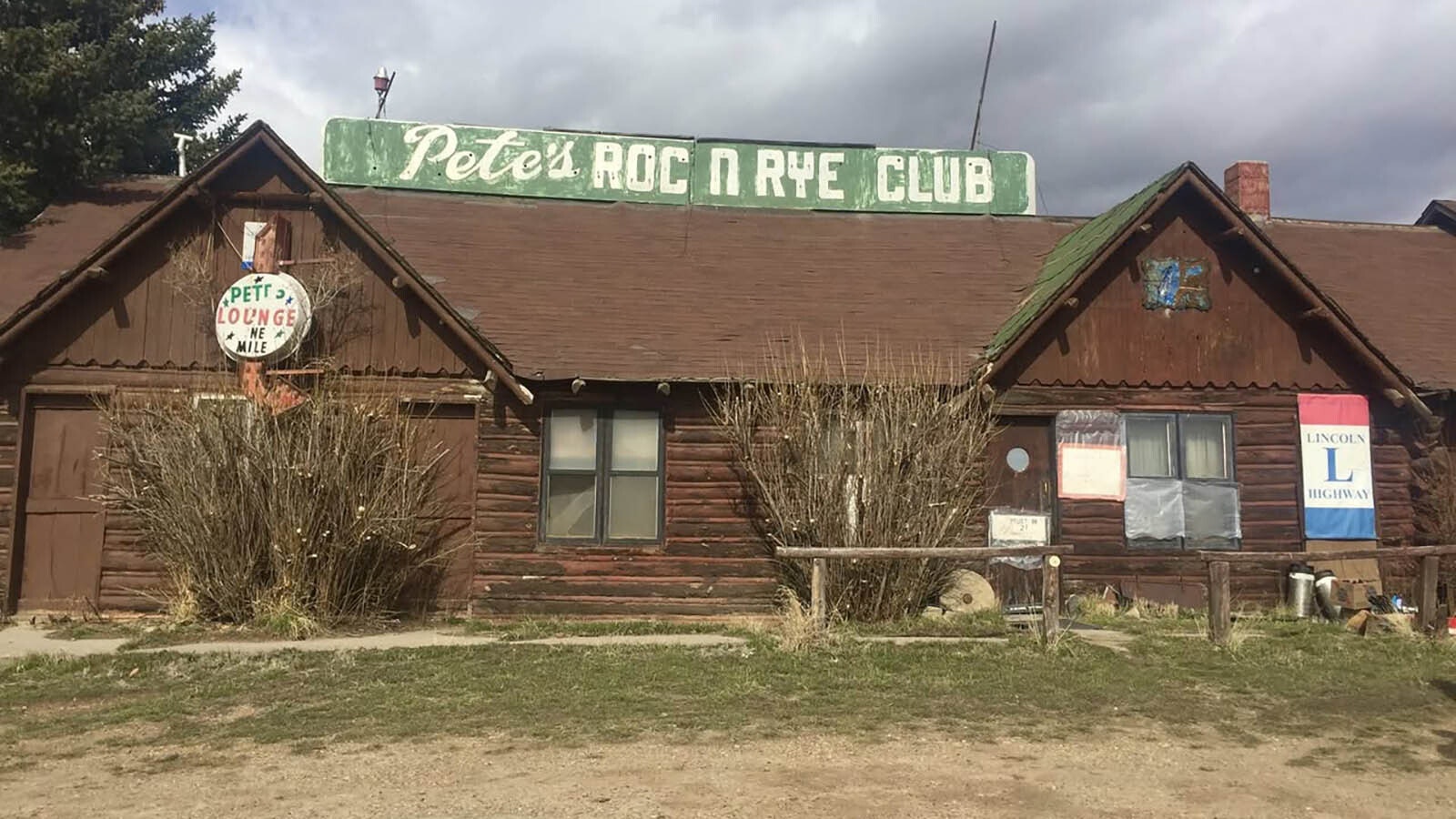Somewhere in a vast and craggy rangeland in central Wyoming, two dogs walk into a bar.
Not an unusual occurrence here, because in the modern-day ghost town of Jeffrey City, population 35, there are more dogs than people.
But that doesn’t stop the rugged individualists within Jeffrey City and the roughly 100 people living in the hills around it from fending for themselves – and taking care of one another.
Founded in 1931 as a simple homestead that welcomed passers-through, the town boomed in 1957 when Dr. C.W. Jeffrey invested in uranium development around the town following uranium discoveries in the area. Electricity arrived in the town that same year.
Jeffrey City’s population hit 4,500 by the late 1970s, but when the uranium market crashed in the early 1980s, the town dried up almost overnight, leaving behind ranchers tending the land their families had occupied for generations, some homebodies and a few transplants fleeing society itself.

With its ironic name, the sparse village of Jeffrey City, south of Riverton, is about 60 miles from the nearest hospital, police station or grocery store. Its last sheriff’s deputy, J. Dee Darnell, passed away in 2017 at the age of 67.
The town’s abandoned 1960s-era bowling alley, library and apartment complexes sit quietly, watching travelers rush by through the decades that have left them behind.
If someone in Jeffrey City needs an ambulance, it will have to be a helicopter. If there’s to be a fight between residents, it had better be resolved quickly.
But the town does have a thriving fire department with 13 volunteers, a motel serving travelers, a schoolhouse with two students, and – for its main artery of communication and human warmth – a bar: The Split Rock Café.
‘We Are The Sheriff’
Nothing is as dead as it looks.
“We’re not end-of-the-world type people, but we’re prepared for anything out here,” said Vern Redland, Jeffrey City’s fire chief.
Redland said that due to the occasional harsh winters and the long distance to the conveniences of bigger communities, the locals like to stock their pantries.
Plus, they’ve got guns in the house and keep their eyes on the road.
Because so many buildings look abandoned, there have been issues with vandalism and theft, but no major crime, said Redland, adding that people look after one another just in case.
“If we see somebody weird driving around, if I see them, I’ll go talk to them,” said Redland. “I’m pretty vigilant; I keep a pretty good eye on everything if I can.”
Because Redland works in mine reclamation, turning old pit mines back into natural landscape, he can’t always keep an eye on the town.
“But there’s others out here,” he said.
Those others include Dusty and Isebel Hiatt, who own the Split Rock Café where thirsty ranchers exchange gossip over drinks; Kevin Robinett, who owns the Green Mountain Motel, which serves summertime travelers; resident John Turner, and Redland’s parents, Tom and Laurie.
“We are the sheriff,” quipped Robinett in his own interview with Cowboy State Daily.
Robinett said that, for lifelong rancher Charlie McIntosh — known to locals as Charlie Mac — and him, car crashes have been the town’s biggest problem historically.
Both men serve as volunteer firefighters and could spill stories “into next week” about the crashes they’ve seen, he said.
Robinett, 60, has been in town for about eight years but McIntosh, 72, has been there almost since birth, and has served on the fire department for 53 years.

McIntosh’s retired cowboy hats hang as decorations in the Split Rock Café – an honor reserved for established locals.
Many crashes occur, said the men, because tourists who don’t know that antelopes have a deadly habit of wandering onto highways like to drive fast.
But the town leaps into action when needed.
McIntosh has a half-century of firefighting experience, Robinett does light mechanic work and Redland is a basic first responder, besides being fire chief.
There are no doctors in town, said Redland, noting that life-flight helicopters are needed for medical emergency transportation.
“The closest thing I’ve got to a doctor is Cheyenne,” he said. “She’s a vet tech.”
Cheyenne Young, who moved to Jeffrey City from Pavillion a year ago, told Cowboy State Daily she has not doctored any people, but has carefully extricated them from crashed vehicles.
Young, a former veterinary technician in Riverton, now serves on the fire department and works as a day rancher and as a bartender at the Split Rock Café.

She and other fire department volunteers responded about a month ago to a wreck requiring a helicopter response.
“I mostly just assisted with the extrication,” she said. “We work on getting the vehicle opened up so when the helicopter gets here they can just take the person pretty easily.”
The fire department’s relatively large volunteer base leaves fire chiefs in surrounding districts scratching their heads, said Redland, as some of those departments struggle to find volunteers in much more populous regions.
‘It Does Make Us Closer’
As a newcomer, Young sees the town through a newcomer’s eyes. And she likes what she sees.
“It’s a tight-knit community, so everyone’s pretty much there for each other,” she said.
When someone has a need, others step up to fill it. And if they can’t, they know someone else who can.
There’s no set character type among townspeople, she added: there are ranchers, hermits, transplants and artists. Some come to Jeffrey City to escape civilization and some stay in the town to hold on to whatever planted them there to begin with.
“It’s kind of a funny mix of people, but at the end of the day, everyone’s mostly there for each other,” she said. “The ‘pros’ are, everyone’s in your business, and the ‘cons’ are – everyone’s in your business.”

Young recalled the day she realized that the hundreds of acres separating residents and a general lack of commerce didn’t stifle the embarrassing gossip tidbit that she’d wrecked her truck.
It was foggy, Young was on her way home to Jeffrey City from Riverton and she hit a cow. She confided in one, maybe two people that day about the accident.
“By the end of the afternoon, when I came into the Split Rock, everyone was asking about it; everyone knew about it,” she said with a laugh. “I got a hard time for that one for a while.”
Although the town is lacking in what more urban dwellers would consider the foundations of a working society — police, grocery stores, hospitals — it’s the pluck, the resourcefulness and the general goodwill of the locals that keeps everyone in line.
“You’re held to a different standard of accountability, because no matter what, someone’s going to know what you’re up to,” said Young, adding, “We kind of have to fend for ourselves a little bit out here, and I think it does make us closer.”





